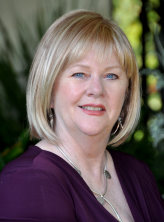
WPN Executive Director
by Kathleen Kaiser, WPN Executive Director
I started teaching Author Promote Thyself workshops almost three years ago to help authors learn what book promotion is, what it requires of them, what services can be farmed out, and most important, to explain how much of the work lies in their laps, even with a legacy publisher for their book.
Things are changing as the world spins into digital madness. Book promotion is right there utilizing cutting-edge technologies—and some older ones, like websites—to develop audiences and sell books. Author Dan Brown just released his latest thriller, Inferno, with a live, video-streamed event from Lincoln Center to libraries and bookstores around the country. It’s his only “live” U.S. appearance to promote the book. He’s appearing on television shows, but there will be no book tour.
That would not have been possible five years ago. Brown knows his market—his readers are faithful. They visit his website, they host chat rooms. They pre-order his books. He knows to release his book worldwide on the same day.
You aren’t a best-selling author like Brown. So, what can you do?
First, you must understand who your audience is. That audience lives on the web now, not in bookstores. I hear so many authors lament because their book isn’t in stores. From this point on, most books will never see a shelf in a bookstore. They will be sold online or digitally downloaded.
So, how do you attract an audience online? The first and most important question is: who is your prospective audience? Remember, 60% of books sold are purchased by women for themselves, and they buy an additional 20% of books sold to give to men. If you are targeting male readers, you have a small universe to find. So how do you find your target?
Start by describing five different target buyers for your book. What keywords would they use on Amazon to find you? What genre are you? What words would attract people to your book—quirky, dark, paranormal, European thriller, jewel heist, transgender exploitation? You must be specific. Test the words yourself on Google. See what comes up. If it’s a book, click through and review the website. Why? Because if it’s even vaguely similar, its readers are potentially your readers. Keep a list of successful words and websites. Make it a mind game when out walking—what other terms could I use to describe my book?
Then go home, Google, see what you find.
Once you have the keywords that lead to a potential audience, you can begin to create the website, blog, Facebook page, and the tools that will promote your book.
